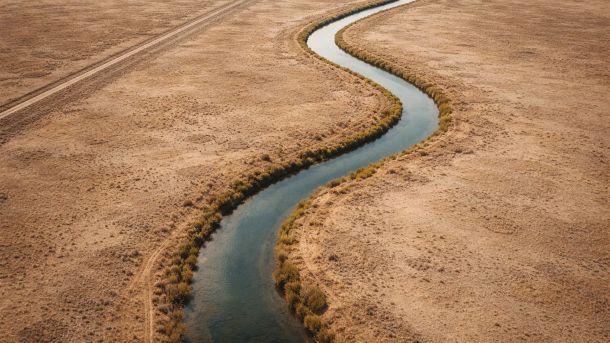Sacrifice: A Means of Becoming Closer to God

In This Article
-
A person supporting others with their personal wealth—be it in the form of alms or sacrificial meat—is the minimal degree of generosity for one who considers himself or herself a believer.
-
“They (believers) prefer [others] over themselves, even though poverty be their own lot.” (al-Hashr 59:9)
At the beginning of the second chapter of the Qur’an, God Almighty declares that He is the actual owner of things and we are temporary keepers: “Out of what We have provided for them they spend...” Namely, what we donate is actually nothing but blessings He has granted us. By pointing out that “He” is the actual Provider of sustenance, He reminds us that there is no need for us to worry about depletion. This point is more directly expressed in another verse, that God Almighty, the Omnipotent One, is the Provider of sustenance of all creatures (al-Dhariyat 51:58).
A person supporting others with their personal wealth—be it in the form of alms or sacrificial meat—is the minimal degree of generosity for one who considers himself or herself a believer.
As for the maximum degree of helping others, let us ponder over the following verse:
“They (believers) prefer [others] over themselves, even though poverty be their own lot.” (al-Hashr 59:9)
Someone who acts with this spirit will offer their time, knowledge, wisdom, wealth, and vision—in short, God’s every bestowal—to the utmost degree and will share what they have with others.
The Festival of Sacrifice (Eid al-Adha) is not only an act of worship observed individually. It is a time when believers conquer hearts in different parts of the world by generously sharing the meat of their sacrifice with others.
The noble Prophet said that for those who observe this good act, God will render their sacrifices given away for His sake into steeds to ride with on the Day of Judgment, when they are most needy. Then, as they will fill with feelings of admiration and wonder, they will try to decide which one to ride.
The noble Prophet demanded everybody who can afford it to offer a sacrifice, and scholars of the Hanafi school ruled that it is no less necessary (wajib) than zakat alms for the wealthy. Those who have the means should not forget the fact that poorer ones have a right to benefit from their wealth.
Provisions for the Hereafter
Another Qur’anic verse encourages people to donate from what they love: “You will never be able to attain godliness and virtue until you spend of what you love (in God’s cause or to provide sustenance for the needy)” (Al ‘Imran 3:92). Thus, it is advised to choose the sacrificial animal from healthy, robust ones with no physical defect, for it will become a steed on the way to Paradise. Note that everything done here will appear to us in the Hereafter with their true reflection of their meaning. As we cannot know how things will be in the next world, we cannot really imagine in what form they will return to us. Maybe our sacrificial animals will appear before us like a plane, ship, boat, or a good horse in the next life. If we consider the issue with respect to the immensity of God’s graces and the truthfulness of His promises, we can say that they will definitely return to us somehow.
According to a report by our mother Aisha, God’s Messenger distributed two thirds of the animal he sacrificed to the poor and left the remaining third at home for his family. This is the criterion for one who wishes to distribute the meat in compliance with the example of the Prophet.
As a matter of fact, seeking closeness to God in all acts of worship, saying “O God, I did this for Your sake only,” and having due integrity in one’s feelings must be the basis of our actions. When giving from one’s wealth—to which we feel much attached—it is necessary to remember other things one can possibly give and show obedience to Divine orders. During the festival of sacrifice, we remember the situation of Prophet Abraham and his son, who grasped so well the gist of worship and submission to Divine orders, when they were tested with the greatest sacrifice one can possibly make: “Then when both had submitted to God’s will, and Abraham had laid him down on the side of his forehead” (as-Saffat 37:103).
If a believer begins the worship of sacrifice with such intention from the very beginning, then all of their ensuing acts will be counted as worship and other things done for the sake of this good deed will also return to that person as rewards in the Hereafter.
When the truth of our seemingly small actions is revealed to us in the Hereafter, they will make us say in astonishment, “O God, how bountiful You are! You have taken these little things, made them bloom, flourish, transform, become eternal, and now You are offering them to us!” In this respect, a person should fulfill the worship of sacrifice in this world with an inner feeling of richness and contentment of the heart. The following verse also refers to this fact: “(Bear in mind that) neither their flesh nor their blood reaches God, but only piety and consciousness of God reach Him from you” (al-Hajj 22:37). If a person carries out this act of worship by viewing it as a connection with God Almighty and a chance to be rewarded by Him, then that person will meet very different riches and surprises in the next world.









